Windows 11 is a powerful operating system, but like its predecessors, it requires awareness of privacy and security. There are features you should disable and stop using if you are concerned about privacy. Data on Windows can be shared or harvested in several ways, but you can prevent these actions from happening. Unless you want to create a local account (which becomes more difficult with each update), you can improve your Windows privacy by avoiding these features.
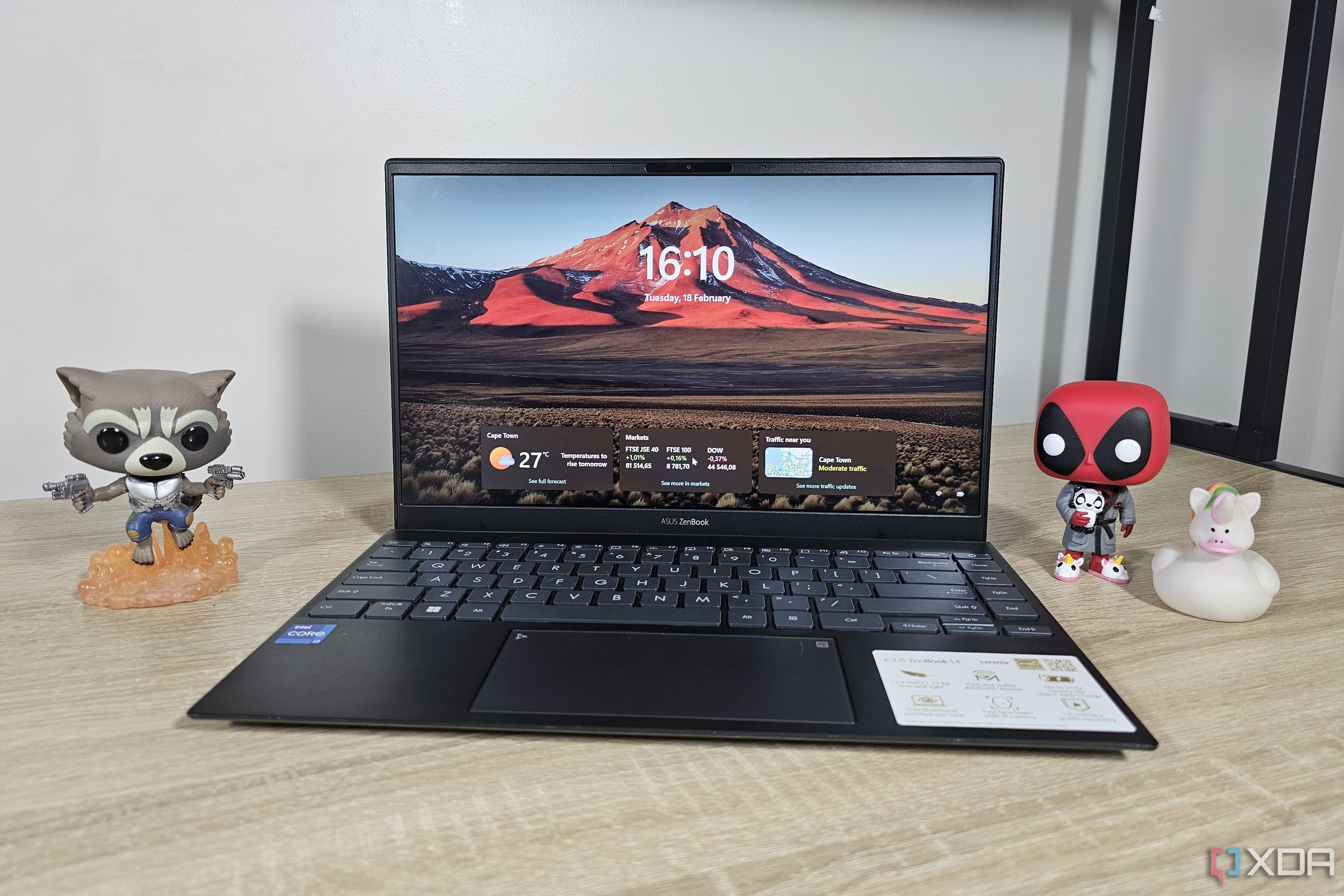
Related
4 Windows 11 features that make me regret upgrading
These Windows 11 features are more of a nuisance than useful
4 Disable Telemetry
It collects data on all features you use
Telemetry is a feature that shares your Windows usage with Microsoft to improve the experience for you and all users. Regardless of the Windows feature you’re using, the system collects your usage data and sends it to Microsoft servers. The company claims that telemetry data is used to enhance the Windows experience. However, there is no guarantee that usage data won’t be sent to collection firms to target ads. Anonymized datasets can be used to track your activity. It tracks your pings to other sites and builds a profile for data brokers to use. In fact, all of your keystrokes and other activity are tracked with telemetry. Whether you are using Word, Edge, or a third-party app, whatever you’re doing is tracked. That includes keystrokes, features you use, servers you ping, and so on.
You can turn off telemetry collection. Once you get to the Settings -> Privacy & security section, you will start to get an idea of everything tracked. Dig a bit deeper by selecting the Diagnostics & feedback section, and turn off everything by turning off the Send optional diagnostic data switch. Location data for the system and specific apps is also something to consider disabling. Some apps might not work correctly, but your PC isn’t a phone where you need location services for a navigator to function properly.
I would be remiss if I didn’t also mention that you should turn off your advertising ID in Settings -> Privacy & security -> General and toggle off personalized ads ID and the other tracking features. I disable everything to improve privacy while using the operating system. Unfortunately, there isn’t a way to turn off all tracking as you could with a fully anonymous OS like Qubes or Tails.
While the data might be sent to the company anonymously, once there, it’s compiled for analysis, and the resulting compilation can be sent to data brokers. So, remember that this data collection is enabled by default, unless you opt out of it during the initial setup of a fresh installation of Windows, or on a new PC.
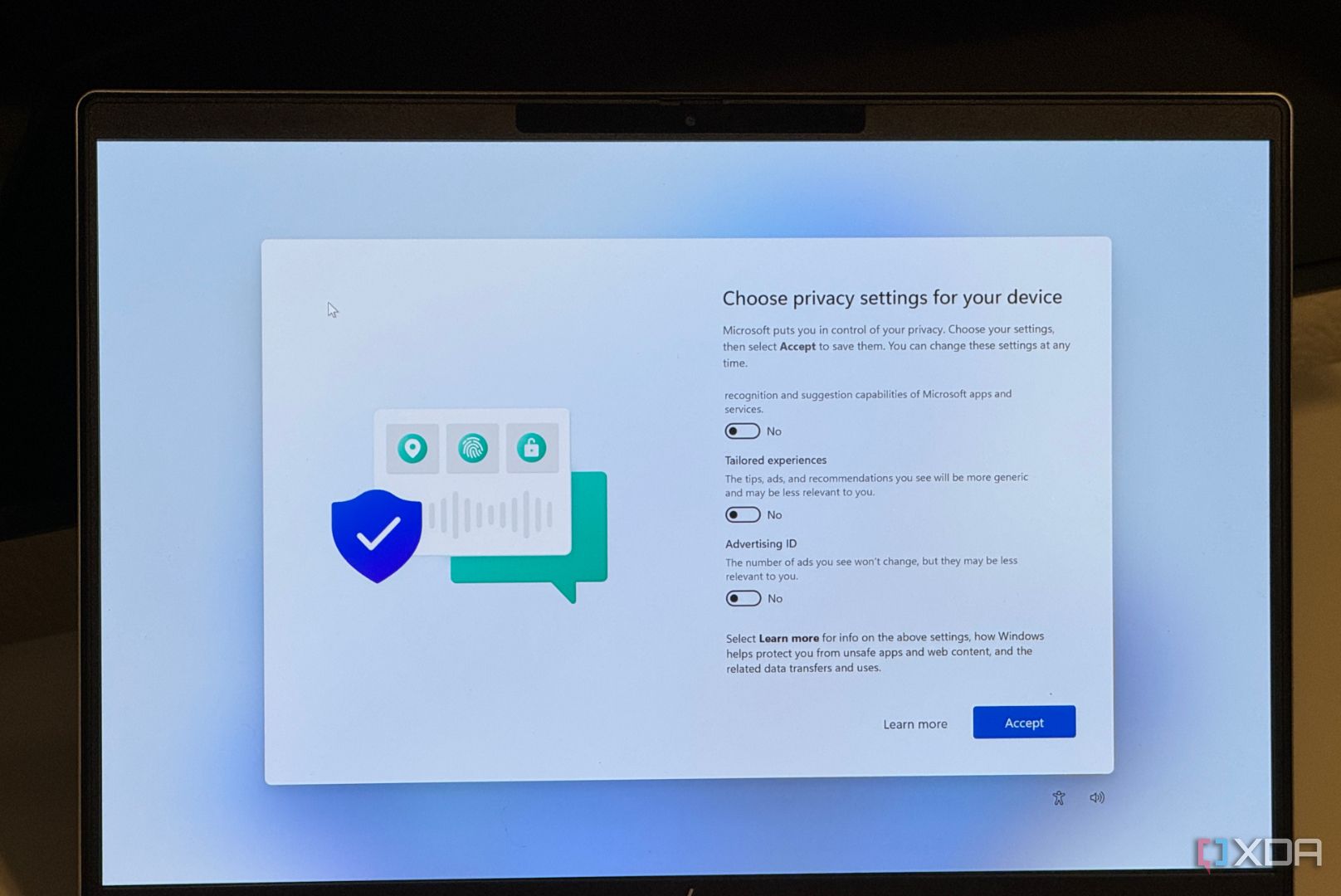
Related
4 reasons I disable Windows telemetry for better privacy
Data is worth more than its weight in gold, and I prefer that mine isn't shared.
3 OneDrive
Risk of data leaks
Microsoft’s cloud storage and sharing feature is odd. It is enabled by default and backs up your default user folders. You can add directories to it, allowing you to back up and share files. But there are privacy issues that smother it. There is a risk of data leakage, hijacks, malware, ad profile building, and other risks inherent in free(ish) cloud storage services. It’s so deeply integrated into Windows that it may upload sensitive files without user consent. That, coupled with performance issues, makes OneDrive a subpar option.
While convenient, if you are concerned about privacy, I recommend using a security-first cloud service like Proton Drive. It provides end-to-end encryption for data transfers and a layer of encryption for your stored files. Proton also uses a zero-knowledge architecture, which means you are the only one with access to view files. It also provides end-to-end encrypted file sharing on both your computer and mobile devices. Once you move to the secure Proton Drive platform, you can disable OneDrive on Windows.

2 Windows Recall
It’s a privacy nightmare on supported systems

When Microsoft rolled out Copilot+ PCs, it announced a new feature called Windows Recall. It’s a feature that constantly records every step you take while using your system. It takes screenshots of every action, allowing you to refer to them in a beautifully displayed GUI timeline. However, it was initially enabled by default with no encryption backup protocol for its database. It also wouldn’t redact sensitive information, including usernames and passwords.
It was met with heavy push back from the Windows community because of its risks. The company made updates to the Recall feature, but it remains a security and privacy mess. Sensitive data like credit card numbers and other personal information can still be exposed and easily viewed by nefarious actors. The company continues to roll out improvements to Recall, but some users remain unimpressed. Despite the clumsy rollout and constant updates, it remains a significant privacy concern.
1 Copilot
Microsoft’s AI marketing is targeting ads
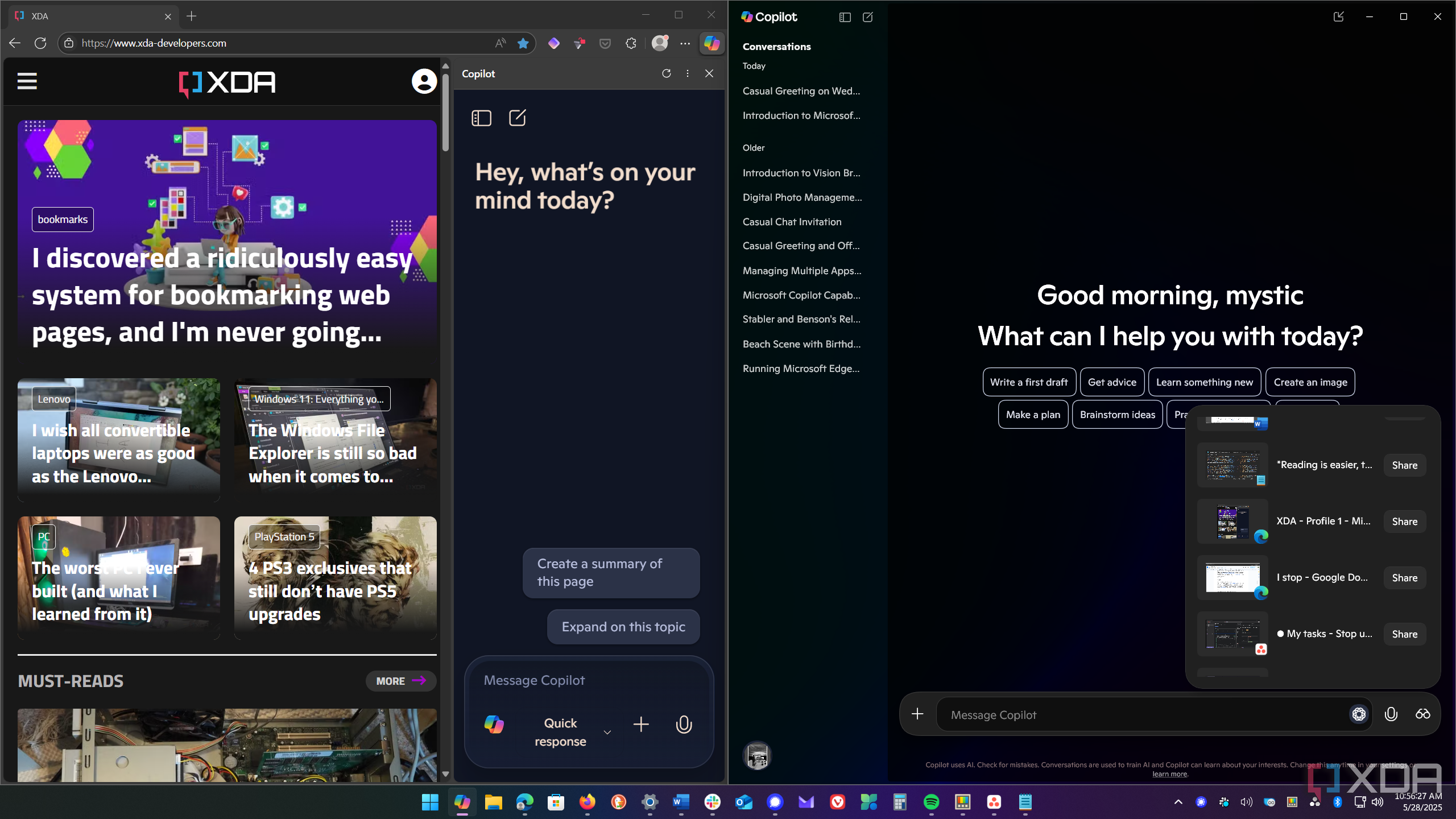
This is the Windows feature I abhor, and I disable Copilot in all the apps it’s crept into. It’s hard to escape and is all over the OS. With AI, you never know what may happen, and with it so tightly integrated into the OS and most of its apps, it has a lot of access to all kinds of data. Your data will then be used to train AI algorithms to “improve the experience,” as claimed by the telemetry data feature. That’s the direction the company is headed, as it’s already using your queries for ads within Copilot. To ensure privacy, I don’t use this feature, at least not on my home system.
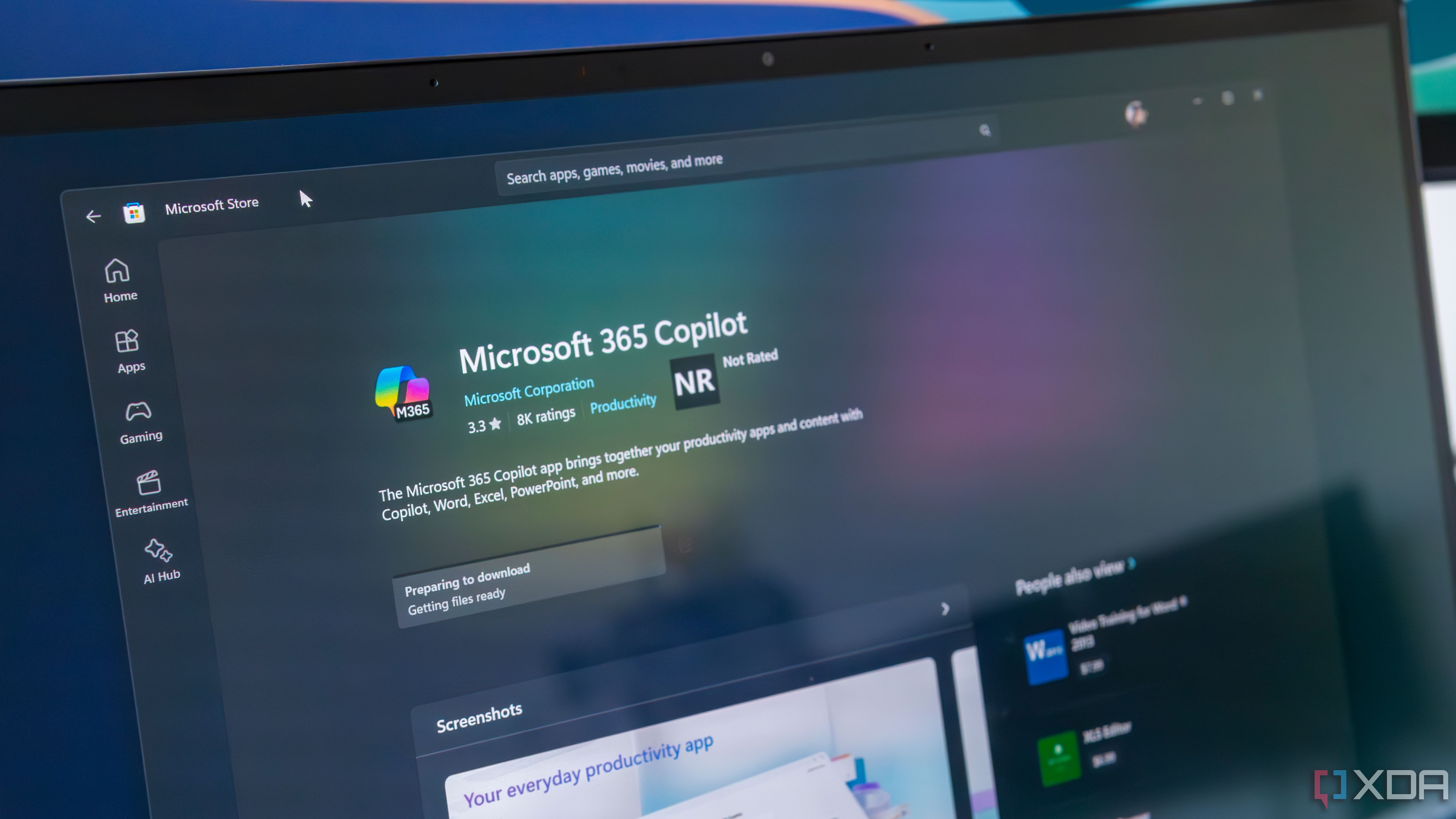
Related
5 reasons I completely remove Copilot on Windows 11 from all apps it’s crept into
Microsoft want to force Copilot AI into your apps on Windows, but I remove it for a better experience.l
Privacy concerns remain while using Windows features
Microsoft raises inherent privacy and security concerns. If you get a new Windows 11 PC or do a clean install, don’t click Next to get past the screens and dive into your workflow. If you do, you’ll want to disable the telemetry and other features immediately. There are plenty of others that you shouldn’t use. There are plenty of free and open-source alternative apps for Windows you can use instead of the system defaults for extra peace of mind. For instance, I use Proton apps for email, cloud storage, VPN, and more. Still, I need to manually disable the telemetry and ad-ID features for a more secure experience.
.png)
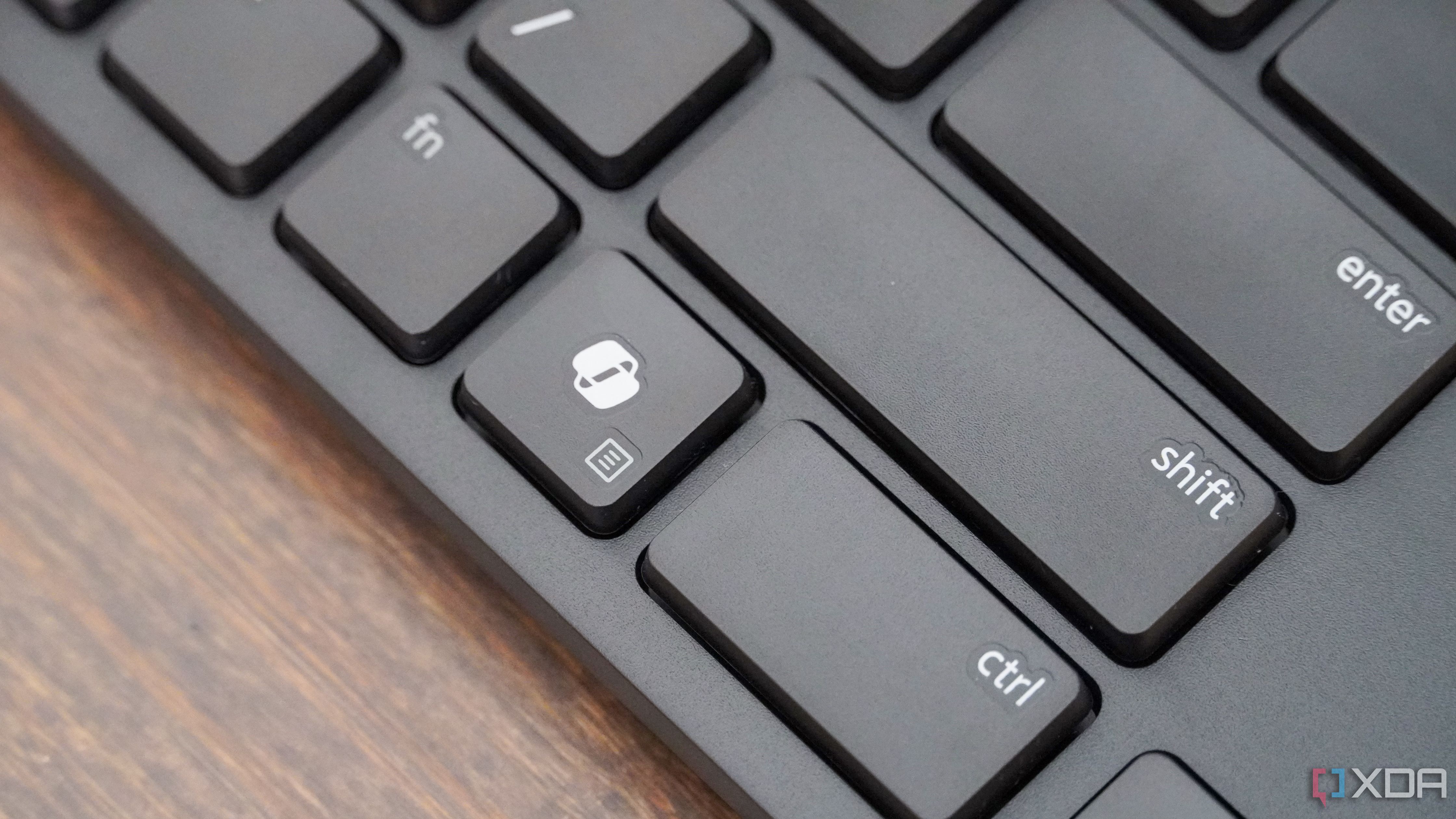











 English (US) ·
English (US) ·